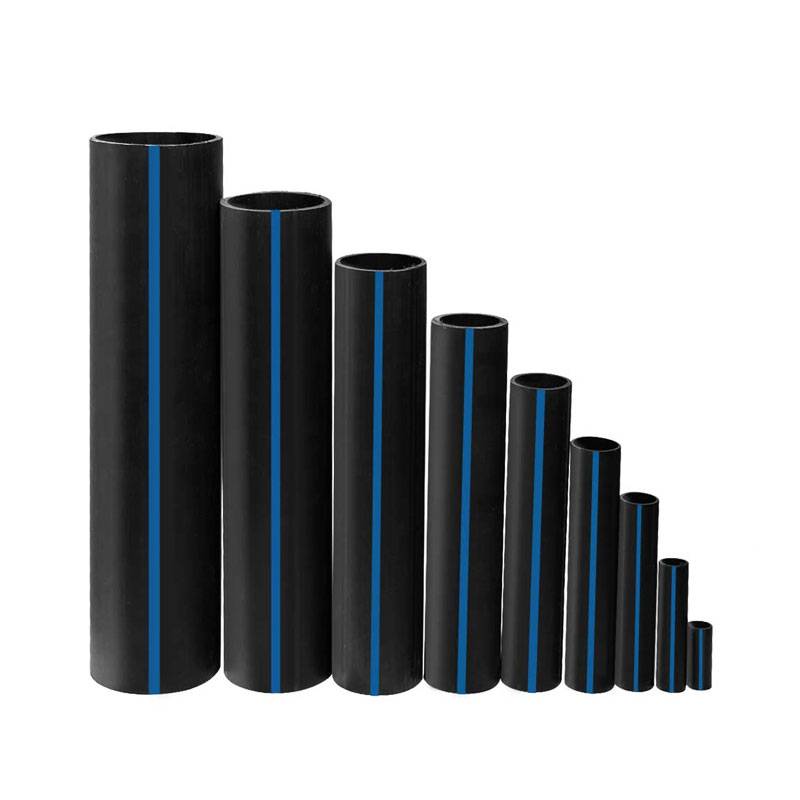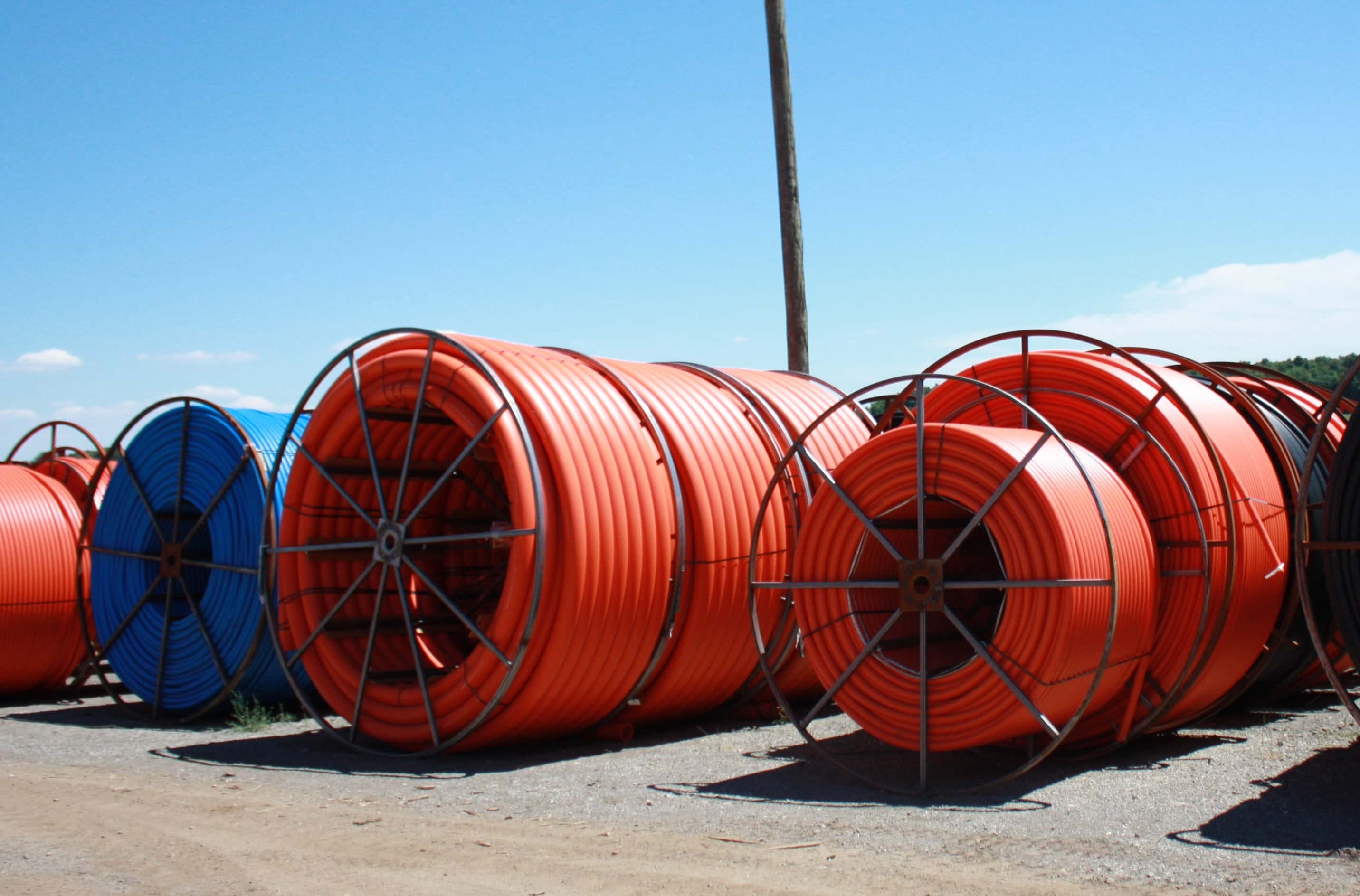Understanding the Key Perks of HDPE Pipe for Water and Wastewater Management
Making use of HDPE pipe in water and wastewater monitoring provides numerous benefits that merit factor to consider. Its exceptional resilience and long lifespan make it a preferred option for several tasks. In addition, the product's resistance to deterioration and chemical damage enhances its dependability in different settings. Nevertheless, the benefits expand past just durability and resistance. Discovering its cost-effectiveness and environmental influence reveals also more engaging reasons for its prevalent fostering in modern facilities
Outstanding Sturdiness and Longevity

HDPE pipeline stands apart for its outstanding durability and longevity, making it a favored option in water administration systems. Created from high-density polyethylene, these pipelines can hold up against significant pressure and anxiety, making certain dependable performance with time. Their robust nature enables them to withstand extreme environmental conditions, including temperature level variations and soil motions, which can trigger various other materials to stop working.
The life expectancy of HDPE pipes usually goes beyond 50 years, supplying an affordable solution for municipalities and industries alike. Additionally, the material's lightweight homes streamline setup, decreasing labor expenses and durations. This toughness reduces the need for constant repair services or replacements, further enhancing its financial charm.
In water management applications, the integrity of HDPE pipes means less disruptions and boosted service connection, making them essential to sustainable facilities development. The mix of sturdiness and long life solidifies HDPE's duty as a foundation in reliable water administration solutions.

Resistance to Rust and Chemical Damages
While numerous products catch rust and chemical damage with time, HDPE pipes exhibit impressive resistance, making them suitable for different water management applications. This strength stems from the molecular framework of high-density polyethylene, which is inherently non-reactive and does not wear away like metals or degrade from direct exposure to severe chemicals. Consequently, HDPE is extremely reliable in atmospheres with hostile compounds, such as wastewater systems that might contain acids, bases, and organic solvents.
In addition, HDPE pipes can hold up against environmental aspects such as soil acidity and saline problems, further boosting their suitability for diverse applications (hdpe pipe fittings Midland TX). Their capacity to maintain structural stability over time decreases the threat of leakages and failures, which is essential in making sure the safety and dependability of water circulation and wastewater monitoring systems. Consequently, the resistance to rust and chemical damage considerably adds to the total performance and longevity of HDPE piping solutions
Cost-Effectiveness and Financial Advantages
When taking into consideration the financial implications of water management systems, the cost-effectiveness of HDPE pipes becomes evident. These pipes provide lower setup and upkeep expenses contrasted to standard products like metal or concrete. Their lightweight nature simplifies transportation and installment, causing decreased labor costs. In addition, HDPE pipelines display a long life-span, usually going beyond half a century, which equates to fewer replacements useful content and lasting financial savings.
The resistance of HDPE to corrosion and chemical damages reduces the need for pricey repair services and replacements. The pipes additionally sustain efficient water circulation, minimizing energy prices linked with pumping systems. By reducing leaks and water loss, HDPE pipelines contribute to significant financial benefits for municipalities and sectors alike. Generally, the first financial investment in HDPE piping can generate considerable monetary returns over the lifespan of the water management system, making it a prudent choice for sustainable infrastructure development.
Ecological Sustainability and Decreased Impact

Versatility and Flexibility in Installment
Due to their special residential or commercial properties, HDPE pipes use amazing versatility and flexibility in setup, making them ideal for a wide variety of applications. Their light-weight nature permits simpler handling and transportation, decreasing labor costs and setup time. HDPE pipes can be curved and shaped to fit various surfaces and task requirements, which is particularly beneficial in challenging atmospheres.
Furthermore, their resistance to deterioration and chemical damage permits setup in varied settings without the requirement for specialized safety coverings. The capacity to fuse joints creates a constant, leak-free system, boosting the overall honesty and reliability of the installment. HDPE's flexibility additionally accommodates repipe company ground activity, minimizing the risk of damages in areas prone to changing dirt. In general, these features make HDPE pipelines not only functional yet also a favored choice for water and wastewater administration systems.
Frequently Asked Concerns
How Does HDPE Pipeline Contrast to PVC in Water Management Applications?
HDPE pipe offers remarkable flexibility, resistance to rust, and resilience contrasted to PVC. Its lighter weight facilitates much easier installation, while its lengthy lifespan lowers replacement prices, making HDPE a favored choice in water administration applications.
What Is the Life Expectancy of HDPE Pipes Under Regular Conditions?
Under common problems, HDPE pipes can have a life expectancy varying from 50 to 100 years. Their resilience and resistance to deterioration add to their long-lasting performance in numerous applications, making them a dependable choice for framework.
Are HDPE Water Lines Recyclable After Their Life Span?
Yes, HDPE pipelines are recyclable after their life span. hdpe pipe suppliers Midland TX. They can be refined and repurposed into new pipe end caps items, considerably decreasing environmental influence and advertising sustainability within the industry, making them a green option for piping remedies
What Is the Setup Process for HDPE Piping?
The setup process for HDPE pipelines includes website preparation, trenching, pipeline fusion or mechanical signing up with, backfilling, and pressure screening. Proper strategies ensure a durable and effective system for transferring water and wastewater effectively.
Can HDPE Water Lines Be Utilized for Both Potable and Non-Potable Water Equipments?
Yes, HDPE pipes can be utilized for both potable and non-potable water supply. Their flexibility, longevity, and resistance to deterioration make them appropriate for various applications, ensuring safe and effective transportation of water in different contexts.